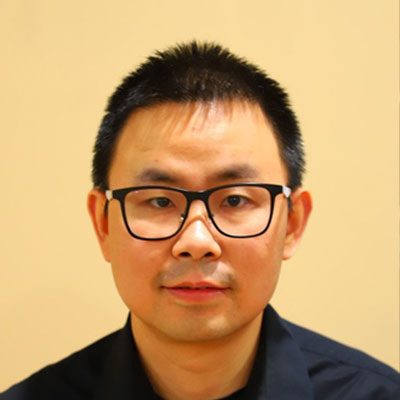
Publications
- Kapila S, Sun Y, Peng C, Zhang S. Soluble alpha-synuclein post-translational modifications: unexpected regulators of pathological alpha-synuclein amplification.. Neural regeneration research, 2024.
- Zhang S, Zhu R, Pan B, Xu H, Olufemi MF, Gathagan RJ, Li Y, Zhang L, Zhang J, Xiang W, Kagan EM, Cao X, Yuan C, Kim SJ, Williams CK, Magaki S, Vinters HV, Lashuel HA, Garcia BA, James Petersson E, Trojanowski JQ, Lee VM, Peng C. Author Correction: Post-translational modifications of soluble α-synuclein regulate the amplification of pathological α-synuclein.. Nature neuroscience, 2023.
- Bronstein JM, Zeiger WA, Peng C. Abandoning the Proteinopathy Paradigm in Parkinson Disease-Not So Fast.. JAMA neurology, 2023.
- Littman R, Cheng M, Wang N, Peng C, Yang X. SCING: Inference of robust, interpretable gene regulatory networks from single cell and spatial transcriptomics.. iScience, 2023.
- Sun C, Zhou K, DePaola P, Shin WS, Hillyer T, Sawaya MR, Zhu R, Peng C, Zhou ZH, Jiang L. Cryo-EM structure of amyloid fibril formed by α-synuclein hereditary A53E mutation reveals a distinct protofilament interface.. The Journal of biological chemistry, 2023.
- Zhang S, Zhu R, Pan B, Xu H, Olufemi MF, Gathagan RJ, Li Y, Zhang L, Zhang J, Xiang W, Kagan EM, Cao X, Yuan C, Kim SJ, Williams CK, Magaki S, Vinters HV, Lashuel HA, Garcia BA, James Petersson E, Trojanowski JQ, Lee VM, Peng C. Post-translational modifications of soluble α-synuclein regulate the amplification of pathological α-synuclein.. Nature neuroscience, 2023.
- Pan C, Peng C. LRP1: a novel receptor for the transmission of pathological α-Synuclein.. Molecular neurodegeneration, 2022.
- Peng C, Trojanowski JQ, Lee VM. Protein transmission in neurodegenerative disease.. Nature reviews. Neurology, 2020.
